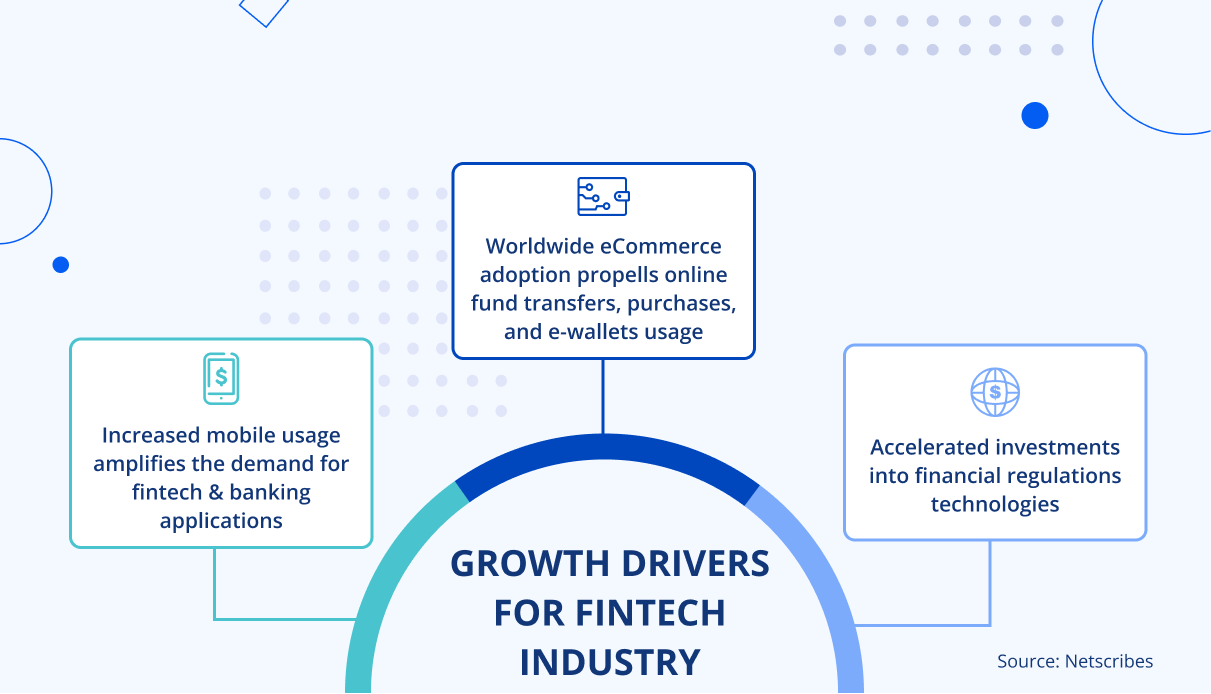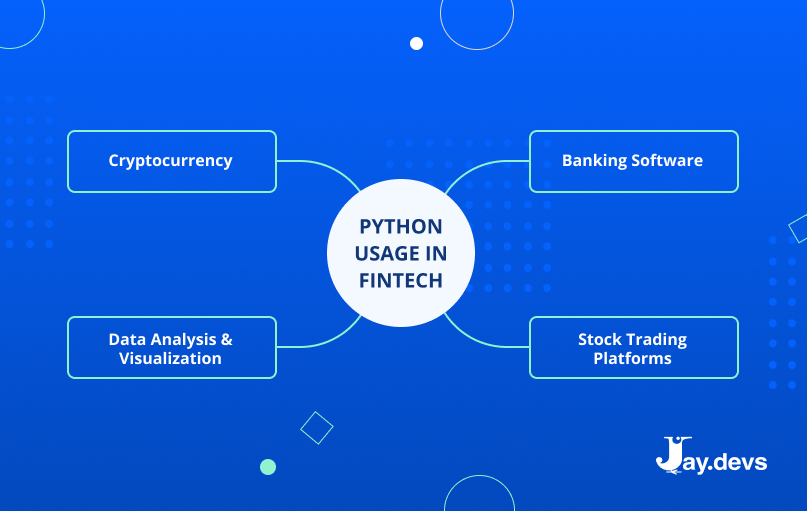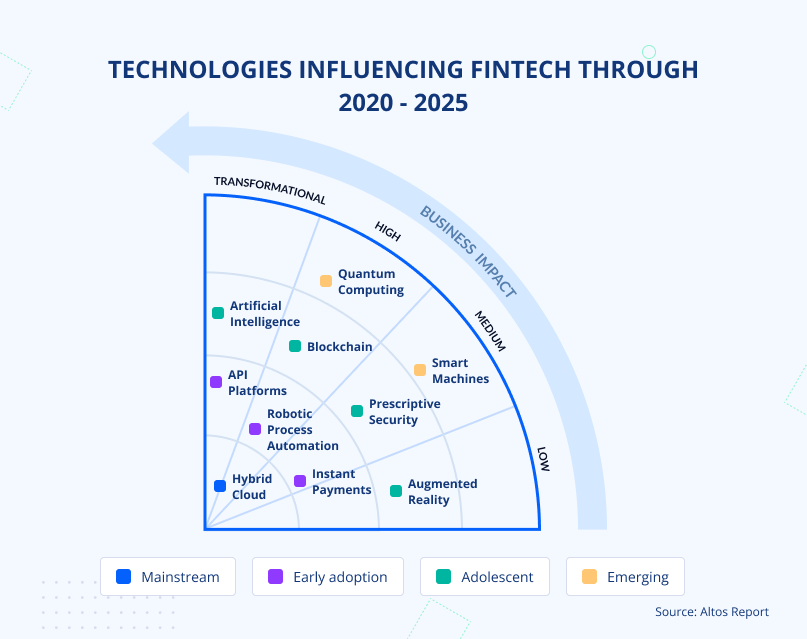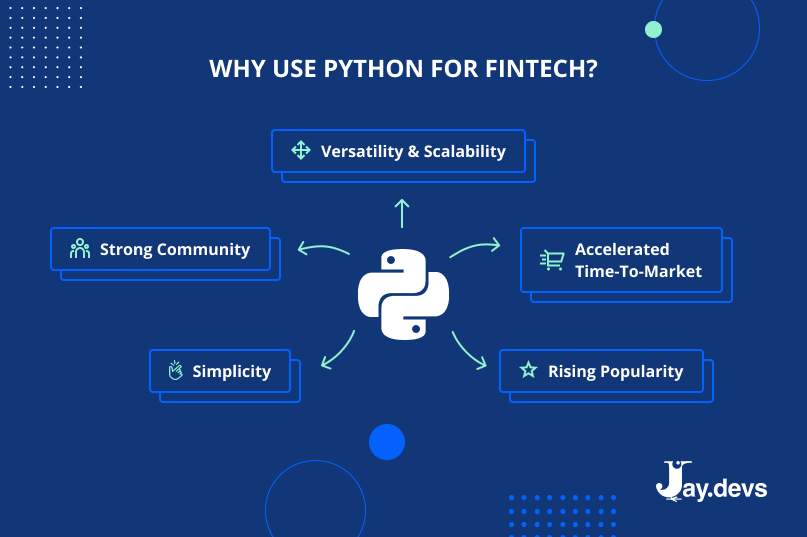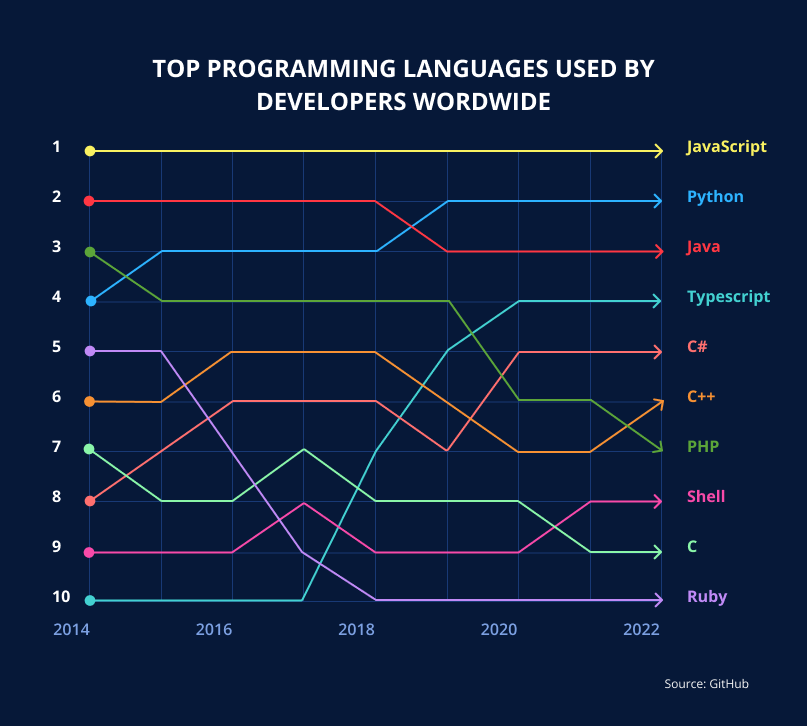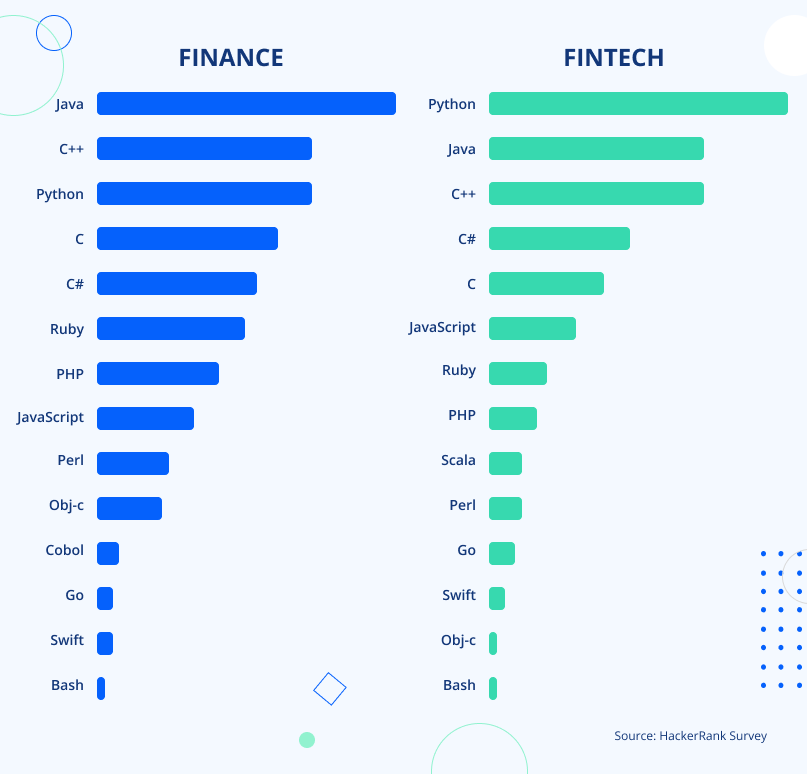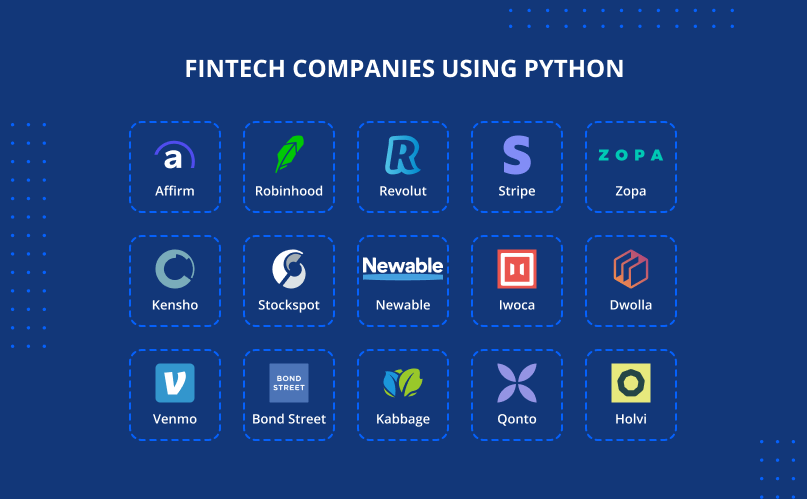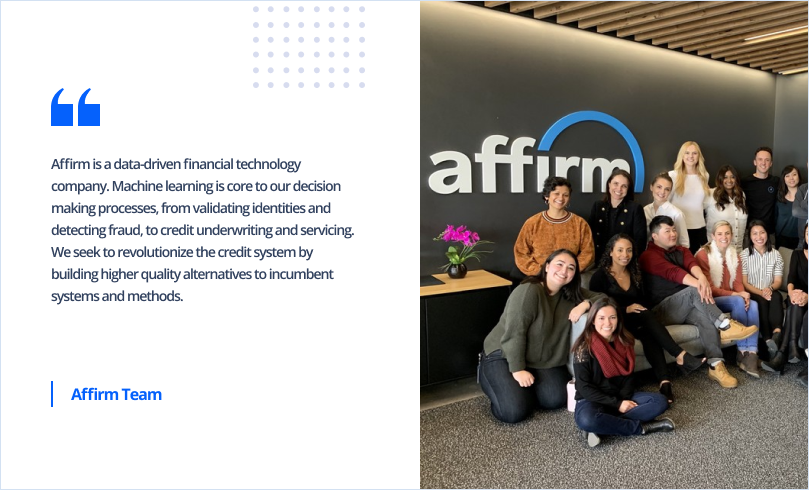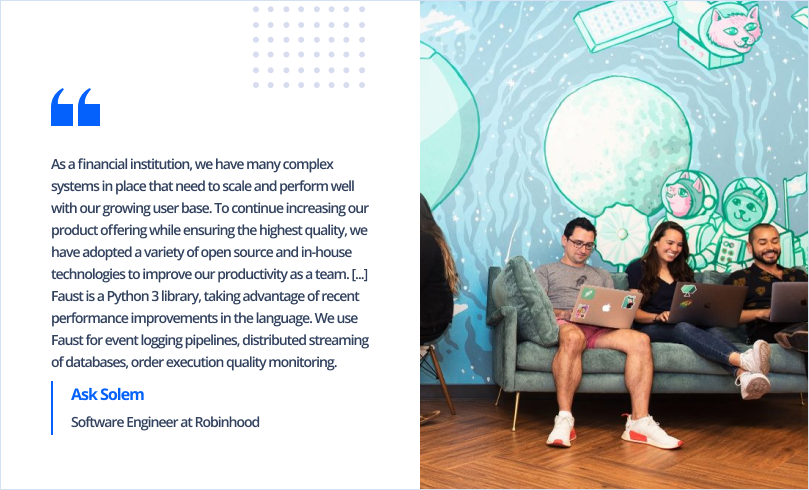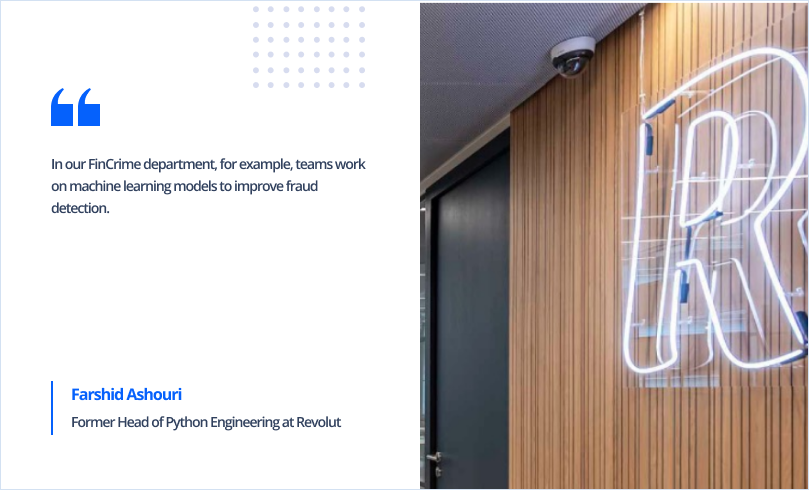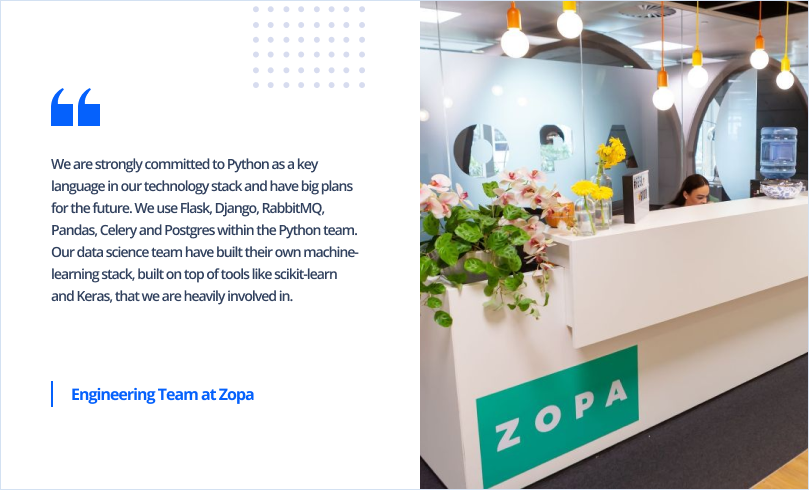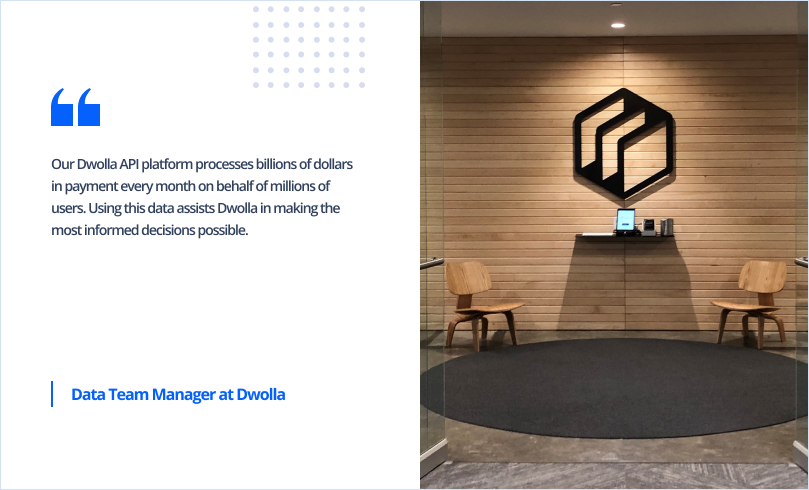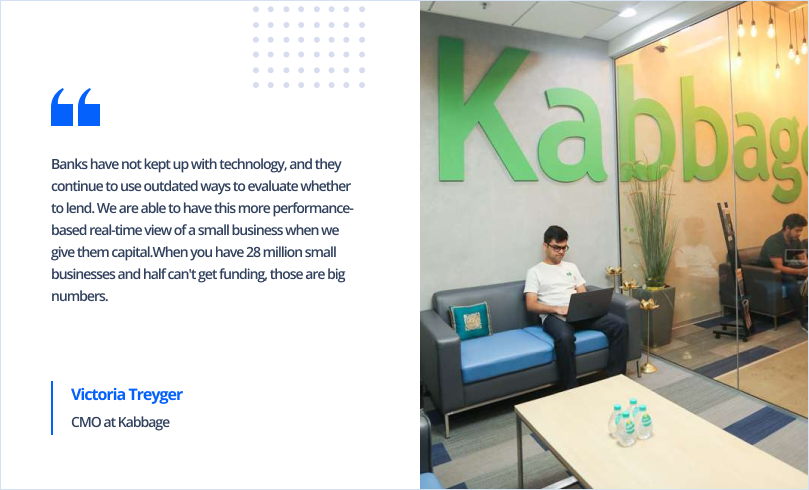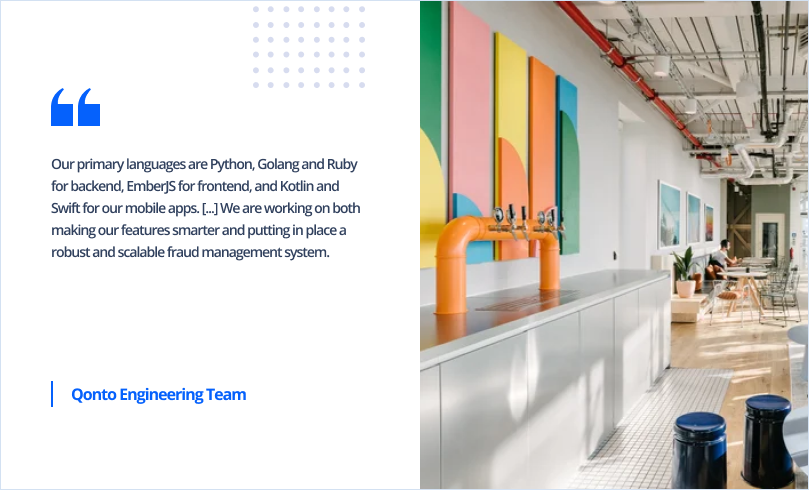The fintech industry has been rapidly growing in recent years. According to Grand View Research, the global financial technology market reached over $232 billion and is expected to rise to $949.49 billion by 2030.
More specifically, worldwide eCommerce adoption and increasing usage of mobile devices are among the core drivers for this growth. To meet client demand, Fintech companies strive to create enhanced solutions for online purchases, mobile banking, and more.
Python is a proven technology helping fintech companies stay ahead of the evolving landscape. It is versatile, flexible and provides a vast array of financial libraries for increased efficiency.
In this article, we’ll dive deep into the areas and benefits of using Python in finance projects. In addition, we will closely examine real-world uses of Python in the finance industry to disclose the full potential of this programming language for your project.
Where is Python Used in Fintech and Finance?
Python’s mathematical capabilities are an essential part of its appeal in fintech. It provides readily usable tools to cover critical tasks like statistical analysis, risk management, and forecasting.
This makes Python applicable for multiple fintech verticals. Let’s look at the core directions of how is Python used in finance.
Data Analysis & Visualization
Collecting, analyzing, and visualizing large volumes of financial data can help identify patterns and anomalies. This helps businesses better understand market trends, customer behavior, and similar vitals.
Python provides powerful data analytics and visualization tools, thereby enabling companies to quickly extract meaningful insights and communicate them through intelligible graphs and charts.
Stock Trading Platforms
Stock trading platforms generate large amounts of data, which can be challenging to analyze and make sense of.
Accordingly, Python comes in handy for algorithmic trading and reducing risk exposure. It offers tools for predictive modeling, automating trading strategies, and enables companies to make informed decisions.
Cryptocurrency
As the cryptocurrency industry expands, companies that analyze this market and provide predictive insights are increasingly in need of analysis programs.
For this, many blockchain platforms leverage Python and its libraries to obtain and analyze the data on the fly.
Another use case of Python for finance is the streamlined development of complex cryptocurrency apps. The programming language embraces simple and rapid development and offers libraries like Pycoin and Bitcoinlib for interacting with blockchain technology.
Banking Software
Banking software vitals include storing customer information (i.e., account details, financial activities, transactions) and online payments.
Banks use Python for accumulating this information and automating transaction processing. In addition, the technology helps to implement security measures for safeguarding sensitive information and preventing fraud.
Python can also be used for ATM software enabling cash deposits, withdrawals, and more.
Advantages of Python in Finance & Fintech
To meet increasing market demand, the financial sector is integrating emerging technologies like artificial intelligence, blockchain, and robotic process automation. For this, companies require something more than just a suitable technology.
In this context, the benefits of Python in finance extend beyond mathematics, offering numerous pros for startups and established companies.
Versatility & Scalability
Python can be used to develop a wide range of applications and tasks, including:
- Web development, including full-scale fintech web platforms
- Data science and analysis
- ML and AI development
- Computer vision and Natural Language Processing
- Scripting and automating tasks ranging from reporting to infrastructure configuration
- Programming of web parsers and crawlers to accumulate information from various sources
- Automated testing
- Desktop and mobile development
In combination with powerful libraries for financial modeling and data analysis, Python can cover almost any aspect of fintech projects.
For instance, Python can handle complex calculations and freely integrate with other technologies, which is essential for big data processing and proper scalability of fintech solutions.
Strong Community
Python’s free, open-source nature has led to a large and supportive community of developers. In 2022, the community reached 16.9 million, the second largest tech community after JavaScript.
Python enthusiasts contribute to the language with innovative tools and libraries for various industries, including finance. There are dozens of resources, tutorials, and forums where developers can get support and share their knowledge.
Such strong community support may help solve problems within the project faster and more efficiently.
Simplicity
Python is a high-level programming language that prioritizes simplicity, readability, and conciseness. It minimizes the amount of code needed for complex operations. This enables finance professionals and engineers to develop sophisticated algorithms easier.
Python makes complex ML, AI, and other solutions easier to adopt while improving maintainability. This is especially important in the fast-paced finance industry.
Accelerated Time-To-Market
Python’s simplicity, flexibility, and ready-to-use libraries enable quick prototyping and iterating of new features. It also can help identify errors faster, thus saving time and money on debugging complex systems.
The programming language provides prebuilt testing frameworks and tools that can help developers in finance and Python startups to deploy applications faster.
These features allow fintech companies to accelerate their innovation: from MVP development to test the waters to incorporating new features (for example, biometric authentication).
Rising Popularity
Python is a well-established language that has been around since 1991.
With the rising demand for skills related to data science, visualization, and more, the popularity of the programming language is booming. According to GitHub statistics, Python was the 2nd most used language among developers in 2022, outranking Java and C++.
Seemingly, it ranked the 3rd most in-demand language by recruiters, according to Statista.
The surging popularity of Python has resulted in an expanding pool of professional developers. Today, there are experts in a range of specializations — from web developers to analysts — who can provide valuable support in utilizing Python for finance projects.
The Best Python Libraries and Packages for Fintech
As mentioned, Python has a broad range of libraries and packages particularly designed for the finance industry. Python packages eliminate the need to develop specific tools from the ground up, thereby saving time and increasing cost-efficiency.
NumPy
NumPy is a fundamental Python library used for mathematical and scientific computations. It enables data scientists to work with data arrays easier and perform the following:
- Calculations and data analysis
- Creation of statistical models
- Data visualization
Pandas
Pandas’ library enhances the processing of financial data. It enables data analysts to:
- Aggregate, filter, and transform data to the required format
- Apply this data for machine and deep learning
- Make statistical operations, such as median and standard deviation
Pyalgotrade
Pyalgotrade is a library for algorithmic trading aimed at reducing human error. Traders can create trading strategies and backtest them in real-time markets. Pyalgotrade can be used by even small teams for:
- Evaluating the historical values of stocks and cryptocurrencies
- Implementing trading strategies and assessing their effectiveness
FinmarketPy
FinmarketPy is a market analysis library specifically designed for trading and investment purposes. It may help with the following:
- Analyzing real-time data for stocks, options, futures, and currencies
- Portfolio optimization and risk management tasks
SciPy
SciPy library is built on top of NumPy and provides additional scientific and technical computing functions. It offers statistical, optimization, integrational, and other modules effective for:
- Financial modeling
- Pricing and portfolio optimization
- Risk management and forecasting
Statsmodels
Statsmodels is a library for statistical testing based on NumPy and SciPy. It easily integrates with Pandas for data manipulation and helps in building accurate statistical models which are helpful for:
- Risk management
- Financial forecasting
- Asset pricing
Quandl
Quandl is a platform that aggregates financial data from various sources. It provides a Python API that can be integrated with other tools like Pandas or NumPy for:
- Financial research and strategies development
- Building predictive models
- ML implementation
Zipline
Zipline library is used for trading algorithms mainly by big financial institutions, such as hedge funds. It provides a tool suite for data acquisition, strategy development, and analysis effective for:
- Implementation of custom trading algorithms using Python
- Evaluating strategies’ performance
Pyfolio
The Pyfolio library is designed to optimize financial portfolios. It provides a range of tools for:
- Analyzing returns and drawdowns
- Evaluating the performance of trading algorithms
TA-Lib
TA-Lib is a library for tech analysis of financial markets. It is written in C++, suitable for integration with Python. It provides 200+ indicators used by traders and analysts for:
- Identifying trading opportunities
- Developing strategies
QuantLib
QuantLib is a framework for quantitative finance compatible with Python. It is commonly used by banks and financial institutions for simplifying the following:
- The creation of financial models
- Measuring and managing financial risks
- Derivative pricing (i.e., options, futures, swaps)
Matplotlib
Matplotlib is a Python library for creating static, animated, and interactive visualizations. It is widely used in fintech for:
- Plotting statistics via charts, graphs, and histograms
- Creating reports and presentations
- Analyzing market trends
Python for Fintech Use Cases
Providing stellar flexibility and access to a huge ecosystem of fintech tools, Python is the top-choice technology for core market players.
Let’s look at 15 real-world Python applications in finance.
Affirm
Affirm is a fintech company that offers point-of-sale loans for online purchases. The company heavily relies on the use of Python in finance for a variety of tasks.
Thus, they use the Flask framework to power their web application with millions of users. They also use Pandas, NumPy, and other tools to build machine learning models used to analyze customer data, determine creditworthiness, and more:
Robinhood
Robinhood is a commission-free trading platform allowing users to buy and sell stocks, cryptocurrency, and more.
The company used Python’s web framework Django to quickly build and iterate on their platform.
Python also powers their microservice infrastructure and allows them to manipulate massive data sets. To provide high performance at scale, Robinhood created Faust library for Python, which improves the processing of billions of user events:
Revolut
Revolut is a fintech company providing digital banking services, including currency exchange, debit cards, and peer-to-peer payments.
Revolut harnesses the power of Python with finance to improve customer service. AI tools help Revolut with the real-time processing of customer requests, while computer vision tools help with facial recognition.
Python is also used in security enhancement:
Stripe
Stripe is a payment processing platform that allows businesses to accept payments online, manage invoicing, subscriptions, and more.
Stripe uses Python for their APIs, which allows businesses to integrate Stripe’s payment processing services into their web and mobile applications. Many companies, including Booking.com, ASOS, and Salesforce, use Stripe’s services to manage thousands of financial operations.
Zopa
Zopa is a lending company providing web and mobile applications for issuing loans, credit cards, and smart savings.
Zopa is aimed at “Simple loans and Smart investments” for clients. They have invested heavily in ML and data science with Python to make it real. Furthermore, Zopa developed its own ML application, Predictor, which allows for credit risk assessment and pricing optimization.
Kensho
Kensho is a fintech company that provides AI and ML solutions for the financial industry.
More specifically, they build solutions allowing companies to work with their bulk data more effectively — from transcribing audio into texts to data extraction and structuring.
A vast ecosystem of Python libraries and packages enabled Kensho to quickly create and release new solutions and stay ahead of competitors.
Stockspot
Stockspot is a fintech company providing an online platform for managing share market portfolios.
Stockspot utilized Python’s Django web framework to manage their backend systems at scale. By combining Django with React, they rapidly developed a highly scalable web app that offers a simplified user experience for a broad audience.
Newable Business Finance
Newable Business Finance provides loans for small businesses in the UK.
Struggling with cumbersome paperwork, NBF required a web platform to offer fast and dependable funds for entrepreneurs. Using Python and Flask, a web server framework, the company finished the product in just two months after starting from scratch.
Iwoca
Iwoca is another finance company that provides small businesses with loans digitally.
Iwoca uses Python for finance projects to increase customer turnaround and satisfaction. Using pre-built packages, they built algorithms to analyze customer data (cash flows, credit histories) and automate loan approval processes.
Dwolla
Dwolla is a US-based fintech company that provides an API for businesses to transfer money.
Apart from managing its infrastructure, the company uses Python for creating data pipelines, which extract information from various sources and gather it into a complete dataset. It helps handle large amounts of data generated daily, making analytics-based decisions and predictions.
Venmo
Venmo is a startup with mobile and web banking solutions sprinkled with social networking. Users can send payments, connect, and chat with friends.
The perfect compatibility of Python and finance operations processing enables swift transactions and improves user experience. The company also uses Django, which provides scalability and security for its platform.
Bond Street
BondStreet startup focuses on “transforming small business lending through technology, data, and design.”
They power their platform with Python for credit risk modeling. Its data analysis and visualization capabilities enable BondStreet to assess the creditworthiness of potential borrowers quickly and accurately.
Kabbage
Kabbage is another startup providing loans for small businesses. The company was acquired by American Express in 2020.
In 2014, the venture launched a Python-based automated funding solution: the tool analyzed business data like transactions, size, time on the market, and credit score. This was a breakthrough for a faster and more accurate lending process.
Now, Kabbage developments are used in AE Business Blueprint — a digital cash flow solution for small businesses.
Qonto
Qonto offers a platform for small businesses to manage their cards, payments, invoices, etc.
The startup is focused on the continuous improvement of its platform with innovations. Python’s financial features, in conjunction with Go and Ruby, provide Qonto with a secure and scalable backend:
Holvi
The last hero in our list of Python finance examples is Halvi — a business platform for banking, invoicing, and bookkeeping.
According to their job postings, they use Python for “web development and API integrations,” relying on its cutting-edge features:
Conclusion: Why Python is the Best for Fintech
Simplicity, flexibility, and versatility are among the core advantages of Python for fintech, providing considerable time and money savings.
Numerous Python libraries allow for automating fintech-critical processes like data analysis, modeling, and visualization. Python also helps fintech unicorns and recognized giants embrace innovations, including machine learning, artificial intelligence, and more.
If you have Python finance project ideas and require experienced Python engineers — that’s what JayDevs particularly provides. Contact JayDevs today to quickly augment your team with remote professionals!





